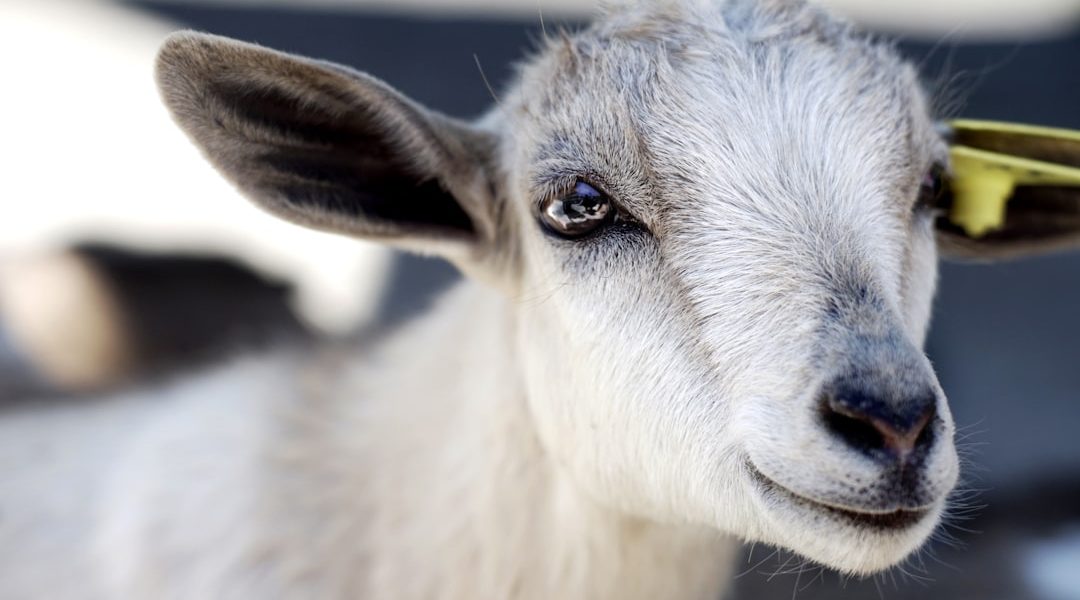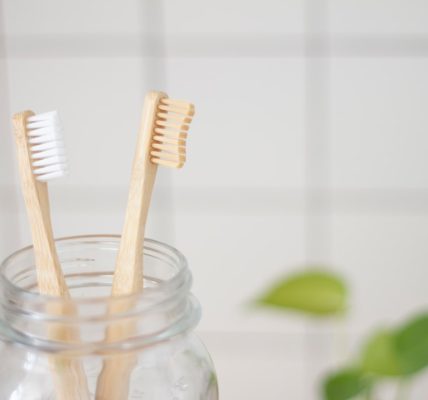Goats, like all mammals, have two sets of teeth in their lifetime: deciduous (baby) teeth and permanent teeth. The deciduous teeth are temporary and are eventually replaced by the permanent teeth as the goat grows. The dental formula for goats is 2(I 0/3, C 0/1, P 3/3, M 3/3) = 32. This means that goats have a total of 32 teeth, with no incisors at the top front of their mouths, a single set of sharp canines, and three premolars and three molars on each side of their upper and lower jaws.
The incisors are the front teeth used for grasping and tearing grass and other vegetation. The canines are the long, pointed teeth used for defense and establishing dominance within the herd. The premolars and molars are used for grinding and chewing food. Goats are ruminant animals, which means they have a complex digestive system that allows them to efficiently break down tough plant material. Their premolars and molars play a crucial role in this process by grinding the food into smaller particles, making it easier for the goat to digest.
The dental anatomy of goats is essential to their overall health and well-being. Understanding the different types of teeth and their functions is crucial for maintaining proper dental care and preventing common dental issues in goats.
Key Takeaways
- Goat teeth consist of incisors, premolars, and molars, each serving different functions in chewing and grinding food.
- Regular dental check-ups and providing a balanced diet can help maintain healthy teeth in goats and prevent common dental issues.
- By examining the eruption and wear of a goat’s teeth, it is possible to estimate its age within a certain range.
- A goat’s diet directly impacts the health of its teeth, with roughage and proper mineral intake being crucial for dental health.
- Proper dental care for goats includes regular cleaning, monitoring for signs of dental problems, and seeking veterinary care when necessary.
Dental Health in Goats: Tips for maintaining healthy teeth and preventing common dental issues.
Maintaining good dental health is essential for the overall well-being of goats. There are several tips for keeping a goat’s teeth healthy and preventing common dental issues. Firstly, providing a balanced diet with adequate roughage is crucial for promoting good dental health in goats. Roughage helps to wear down the goat’s teeth naturally, preventing overgrowth and other dental problems. Additionally, ensuring that goats have access to clean water at all times is essential for maintaining good dental health. Water helps to soften food and aids in the digestion process, reducing the risk of dental issues such as impaction or overgrown teeth.
Regular dental check-ups by a veterinarian are also important for maintaining good dental health in goats. A veterinarian can examine the goat’s teeth and identify any potential issues early on, preventing them from developing into more serious problems. Lastly, providing appropriate chew toys or blocks can help to naturally wear down a goat’s teeth and prevent overgrowth. These toys also provide mental stimulation for the goats, promoting overall well-being.
By following these tips, goat owners can help maintain healthy teeth in their animals and prevent common dental issues that can affect a goat’s overall health and productivity.
Age Determination through Teeth: How to estimate a goat’s age by examining its teeth.
Estimating a goat’s age by examining its teeth is a useful skill for goat owners and veterinarians. As goats age, their teeth change in appearance, making it possible to estimate their age based on their dental development. In general, a goat’s age can be estimated by examining the eruption and wear of its incisors. As goats age, their incisors erupt and wear down at predictable rates, allowing for a rough estimation of their age.
For example, a young goat will have all of its deciduous (baby) teeth erupted by the time it is 1 year old. By the age of 2, the central incisors will show signs of wear, and by 3 years old, the wear will extend to the lateral incisors. By the age of 4, the wear will reach the corner incisors, and by 5 years old, all the incisors will show signs of wear. After the age of 5, estimating a goat’s age becomes more challenging as wear patterns can vary widely based on factors such as diet and genetics.
While estimating a goat’s age based on its teeth is not an exact science, it can provide a rough idea of the animal’s age, which can be useful for managing breeding programs and making informed decisions about the care of older goats.
Goat Teeth and Nutrition: Exploring the relationship between a goat’s diet and the health of its teeth.
| Goat Diet | Teeth Health |
|---|---|
| High-quality forage | Healthy teeth with minimal wear |
| Grains and concentrates | Increased risk of dental issues and wear |
| Mineral supplements | Improved dental health and strength |
| Proper hydration | Supports overall dental health |
The relationship between a goat’s diet and the health of its teeth is crucial for maintaining overall well-being. A balanced diet that includes roughage such as hay, grass, and browse is essential for promoting good dental health in goats. Roughage helps to naturally wear down a goat’s teeth as they chew, preventing overgrowth and other dental issues. Additionally, providing access to mineral blocks or supplements can help to ensure that goats receive essential nutrients such as calcium and phosphorus, which are important for maintaining strong teeth and overall dental health.
It is also important to consider the quality of the food provided to goats. Poor-quality feed can lead to dental issues such as overgrown teeth or malocclusion, which can affect a goat’s ability to eat properly and lead to other health problems. Ensuring that goats have access to clean water at all times is also essential for maintaining good dental health. Water helps to soften food and aids in the digestion process, reducing the risk of dental issues such as impaction or overgrown teeth.
By paying attention to the relationship between a goat’s diet and the health of its teeth, goat owners can help ensure that their animals receive the nutrition they need to maintain healthy teeth and overall well-being.
Dental Care for Goats: Best practices for caring for a goat’s teeth, including regular cleaning and maintenance.
Caring for a goat’s teeth is an important aspect of overall herd management. Regular cleaning and maintenance can help prevent common dental issues and promote good dental health in goats. One best practice for caring for a goat’s teeth is to provide appropriate chew toys or blocks that can help naturally wear down their teeth and prevent overgrowth. These toys also provide mental stimulation for the goats, promoting overall well-being.
Regular dental check-ups by a veterinarian are also important for maintaining good dental health in goats. A veterinarian can examine the goat’s teeth and identify any potential issues early on, preventing them from developing into more serious problems. Additionally, providing a balanced diet with adequate roughage is crucial for promoting good dental health in goats. Roughage helps to wear down the goat’s teeth naturally, preventing overgrowth and other dental problems.
Lastly, ensuring that goats have access to clean water at all times is essential for maintaining good dental health. Water helps to soften food and aids in the digestion process, reducing the risk of dental issues such as impaction or overgrown teeth. By following these best practices for caring for a goat’s teeth, owners can help maintain healthy teeth in their animals and prevent common dental issues that can affect a goat’s overall health and productivity.
Common Dental Problems in Goats: Identifying and treating common dental issues in goats, such as overgrown teeth and dental abscesses.

Common dental problems can affect goats’ overall health and productivity if left untreated. Overgrown teeth are one of the most common dental issues in goats. Overgrown incisors or molars can lead to difficulty eating, weight loss, and other health problems if not addressed promptly. Regular dental check-ups by a veterinarian can help identify overgrown teeth early on and prevent them from developing into more serious issues.
Dental abscesses are another common problem in goats that can be caused by tooth decay or injury to the mouth. Abscesses can cause swelling, pain, and difficulty eating for affected goats. Treatment typically involves draining the abscess and administering antibiotics to prevent infection. In some cases, affected teeth may need to be extracted to resolve the issue.
Malocclusion is another common dental problem in goats that occurs when the upper and lower jaws do not align properly, leading to difficulty eating and other health issues. Treatment may involve filing down overgrown teeth or extracting affected teeth to correct the issue.
By identifying common dental problems early on and seeking prompt veterinary care, goat owners can help ensure that their animals receive appropriate treatment to maintain good dental health and overall well-being.
The Importance of Goat Teeth: Understanding the crucial role that healthy teeth play in a goat’s overall well-being and productivity.
Healthy teeth play a crucial role in a goat’s overall well-being and productivity. Proper dental care is essential for maintaining good health in goats as it directly impacts their ability to eat, digest food, and maintain proper nutrition. Healthy teeth are essential for efficient chewing and grinding of food, which is crucial for proper digestion in ruminant animals like goats.
Additionally, healthy teeth are important for maintaining body condition and overall productivity in goats. Dental issues such as overgrown teeth or malocclusion can lead to weight loss, difficulty eating, and other health problems that can impact a goat’s ability to thrive.
Furthermore, healthy teeth are essential for promoting mental stimulation in goats. Providing appropriate chew toys or blocks can help naturally wear down a goat’s teeth while also providing mental enrichment for the animals.
In conclusion, understanding the importance of healthy teeth in goats is crucial for promoting overall well-being and productivity in these animals. By maintaining good dental care practices and seeking prompt veterinary care for any dental issues that arise, goat owners can help ensure that their animals have healthy teeth and thrive in their care.
If you’re interested in learning more about goat teeth, you should check out this article on beadprovenance.com. This website offers a fascinating look at the history and significance of goat teeth in various cultures, as well as their use in traditional jewelry and adornment. It’s a great resource for anyone curious about the cultural and symbolic importance of goat teeth.
FAQs
What is the structure of a goat’s teeth?
Goats have a total of 32 teeth, with 8 incisors on the bottom front, a dental pad on the top front, and molars in the back for grinding food.
At what age do goats typically start growing their permanent teeth?
Goats usually start growing their permanent teeth at around 4-6 months of age.
How do goats use their teeth?
Goats use their teeth for grazing, browsing, and chewing their cud. They also use their teeth for defense and grooming.
Do goats require dental care?
Goats generally do not require dental care if they have access to proper forage and a balanced diet. However, regular dental check-ups by a veterinarian are recommended to ensure their teeth are healthy.
What are some common dental issues in goats?
Common dental issues in goats include overgrown teeth, dental abscesses, and tooth decay. These issues can be caused by poor diet, lack of dental care, or genetic factors.
How can I help maintain my goat’s dental health?
Providing a diet high in fiber, regular access to forage, and ensuring proper dental care by a veterinarian can help maintain a goat’s dental health. Additionally, providing access to mineral supplements can also support dental health.




